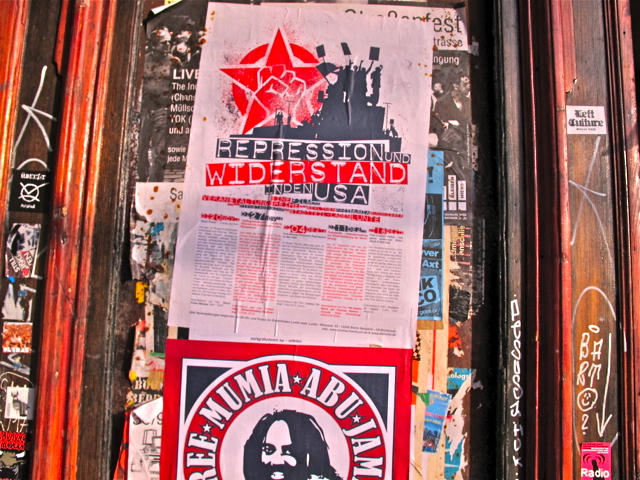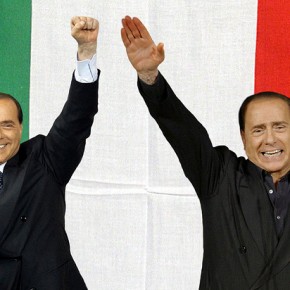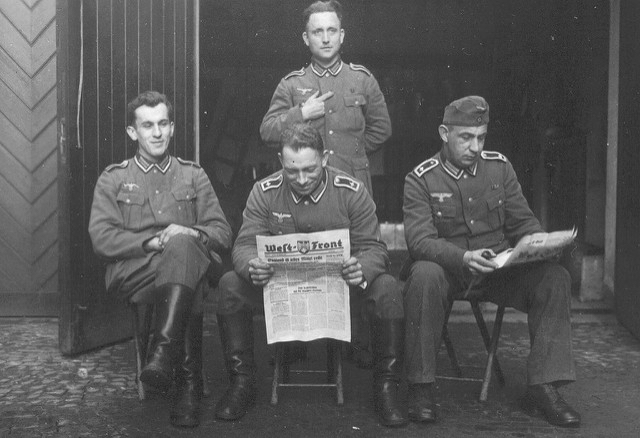While leftists in Germany today often focus on the plight of immigrants, particularly from the Middle East and North Africa — and the corollary concerns in the homelands of those immigrants — attention is also directed at the self-righteous superpower whose long shadow still falls over Europe: the United States of America. Negative attention is directed both at the country’s imperialist ventures and their domestic equivalent. As this flyer from a squat in Berlin’s Neukölln neighborhood attests, the link between these two modes of state power is not hard to discern, even for Germans raised by parents who still believed that the United States was the “Land of Unlimited Possibilities.”
Repression and Resistance in the USA
A Series of Films and Presentations by the Berlin Chapter of the Free Mumia Coalition
Tuesday, November 12th, 2012
“Black Power” — Presentation and Film
Evolving out of the U.S. Civil Rights struggle in the middle of the 1960s, the “Black Power” Movement managed, in the space of a few years, to articulate important anti-racist impulses and a spirit of revolutionary change far beyond the United States. For many years, this movement made it possible for People of Color to achieve a previously unknown degree of societal participation. It was, however, fought with extreme brutality and sectors of American society continue pushing back against its accomplishments to this day. Nevertheless, the discourse of the Black Power Movement remains a significant influence on controversies involving the Radical Left in many countries. (30 minute presentation by the Berlin chapter of the Free Mumia Coalition.)
Afterwards, the film Black Power Mixtape 1967-1975
Tuesday, November 27th, 2012
“The Prison Industry: Modern Slavery as a Social Model in Neo-Liberalism”
Since the middle of the 1970s, public-private partnerships have been observed in the American penal system. What was originally a small concern has become one of the biggest domestic industries, one that has also been imitated in Europe. Simultaneously, the rate of incarceration in the United States has positively exploded — 25% of all incarceration worldwide is located there and provides, to a large extent, compulsory labor, the overwhelming majority of which consists of People of Color. Parallel with the build-up of the prison industry, the few rudimentary achievements of the welfare state were completely dismantled. In a roughly one-hour-long presentation, the Berlin chapter of the Free Mumia Coalition will give an overview of the emergence and current dimensions of the prison industry and look at contemporary developments in this country.
Afterwards, the film Prison Valley: Incarceration in the Economic Sector (France/USA, 2010)
Tuesday, December 4th, 2012
Free Mumia! Political Repression in the USA
This week marks the thirty-first anniversary of the incarceration of Afro-American journalist Mumia Abu Jamal, who has published like practically no other prisoner on the reality of solitary confinement, the death penalty, the prison industry and institutional racism and political repression in the United States. He is, however, only one of the approximately 4000 political prisoners in a country that officially upholds freedom of opinion and democracy. In a half-hour overview, the Berlin chapter of the Free Mumia Coalition will go into detail about different longtime political prisoners and the repression of the movements from which they come.
Afterwards, the film Justice on Trial (USA, 2010, OmU)
Tuesday, December 11th, 2012
The Death Penalty — State Terrorism For the Intimidation of the Populace
Every December 10th the United Nations observes Human Rights Day, while not a few of the participating governments reserve the right to murder prisoners. The death penalty is assigned the function of securing political order. Taking the example of the United States as the last Western democracy that serves as a standard — and alibi — worldwide, the Free Mumia Coalition would like to examine the juridical and societal premises of the death penalty more exactly, in order to emphasize its hegemony-stabilizing character. (Presentation of about forty minutes).
Afterwards, the film The Last Words of Frances Newton: Chornicle of an Execution (Germany/USA, 2006)
Free Leonard Peltier — Indigenous Political Resistance in the USA
North American’s aboriginal population was nearly exterminated during 500 years of colonization. At present, indigenous peoples make up less than one percent of the population of the United States. Many are incarcerated. Following the example of the Black Panther Party, a determined resistance developed in the 1970s, one which has been met by the authorities with repression and ignorance. A roughly half-hour introduction by the Berlin chapter of the Free Mumia Coalition.
Afterwards, the film Incident at Oglala (USA, 1992; German)
Commentary and translation by Charlie Bertsch. Photograph courtesy of Joel Schalit.





